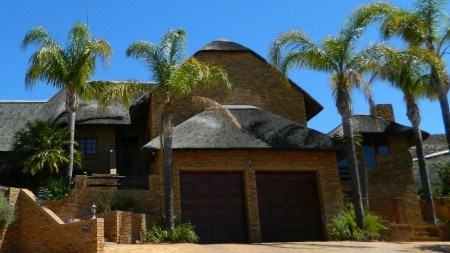Although there has been reduced activity in the market recently, Pam Golding CEO, Dr Andrew Golding believes there are signs of recovery.
While the residential property market in general has been experiencing a reduction in activity over the past two years, there are definite signs of a positive shift in the marketplace, with heightened activity notable in the residential developments market in key nodes around the country and a strong drive towards value for money fuelling the lower to middle price bands.
This is according to Dr Andrew Golding, CE of the Pam Golding Property group, which has just reported sales of R20 billion across the 300 offices of the group for the financial year ended February 2017.
Says Dr Golding: “While location and ease of access to the workplace within key nodes remains paramount for home buyers, we are seeing good activity and sales at every level of the market, with positive indications of the possibility of modestly improved house price growth during the course of the current year. The requirement for value for money is also a discernible trend across all sectors of the market.
“There are a number of noteworthy trends evident in the marketplace, not least of which is that the Western Cape remains the top performing market in respect of house price inflation, albeit at a slightly more modest pace.”
At 8.9 percent year on year in February 2017, the Cape’s housing market is outperforming the other major regional markets by a comfortable margin and considerably exceeding national house price inflation of 4.1 percent for the same period.
Reflecting the downsizing trend and growing first-time buyer market, smaller sectional title prices remain resilient, with smaller apartments showing robust growth.
Says Dr Golding: “Indicative of a revitalisation in developments in key high demand areas, more specifically major metropolitan hubs, the residential developments market in the Cape Town metropole continues to draw an increasing number of buyers and investors demonstrating a voracious appetite for prime located, quality apartments mainly on the Atlantic Seaboard and City Bowl areas.
“Developer confidence is running higher than ever with a number of new development projects in the pipeline with virtually the only constraint being space or availability of property for redevelopment. The new central city development, 16 on Bree comprising 350 units, sold out in just two weeks. The capital growth in the inner city of Cape Town has been impressive. In 2004, apartments in Mutual Heights - which was the first commercial property conversion to residential, were sold at R4 000 per square metre, while central city apartments are currently selling up to R55 000 a square metre.”
As Laurie Wener, Pam Golding Properties senior executive for developments in the Cape Town metro points out, people are prepared to pay a premium for a new unit with delivery between one and three years. “This trend continues unabated and is in fact gathering momentum, driven by a number of factors including an incoming stream of home buyers mainly from Gauteng as well as KwaZulu-Natal. They include a high ratio of investors seeking a sound medium to long term investment proposition and entering the letting market on a short or long-term basis, seeking properties in the price range anywhere between R1.5 million and R14m.
“The fact is Cape Town is increasingly seen as a prime global holiday destination and place of interest – the ideal location to own an apartment and enjoy all the lifestyle benefits plus investment potential.”
Although the uptake in developments in Gauteng is not as feverish as in the Cape, Jason Shaw, national sales executive for Pam Golding Properties, says buyers are acquiring units in a number of developments in key growth nodes such as Rosebank, Melrose Arch, Menlyn Maine in Pretoria, in developments such as Steyn City in the Fourways area and with a number of smaller new developments planned. Ongoing infrastructure upgrades, commercial and retail developments are proving a catalyst for further residential development projects, with eager developers ready to bring product to the market.”
An interesting new trend is demand from Capetonians, who live and work in the Mother City, looking to buy properties in Gauteng as a buy to let investment, while enquiries for properties close to the Gautrain Station for commuter convenience are running high.
In the existing homes market up and coming areas such as Blairgowrie and Linden are proving popular, affordably priced from an entry level below R2 million which compares favourably price-wise with areas such as The Parks where homes are fetching into the R10-R12 millions.
Says Dr Golding: “We are also seeing ongoing good activity in the luxury market with more activity in the top end, including areas such as Sandton in Johannesburg and Bishopscourt in Cape Town’s Southern Suburbs – with the latter experiencing low stock levels.
“Coastal regions such as the KwaZulu-Natal North Coast - including well-populated nodes such as uMhlanga and Ballito - are enjoying high interest due to factors such as lifestyle appeal, convenience and investment potential in live/work/play hubs, while the Garden Route areas of Knysna, Plettenberg Bay and George, and Port Elizabeth in the Eastern Cape have really come to the fore.”




